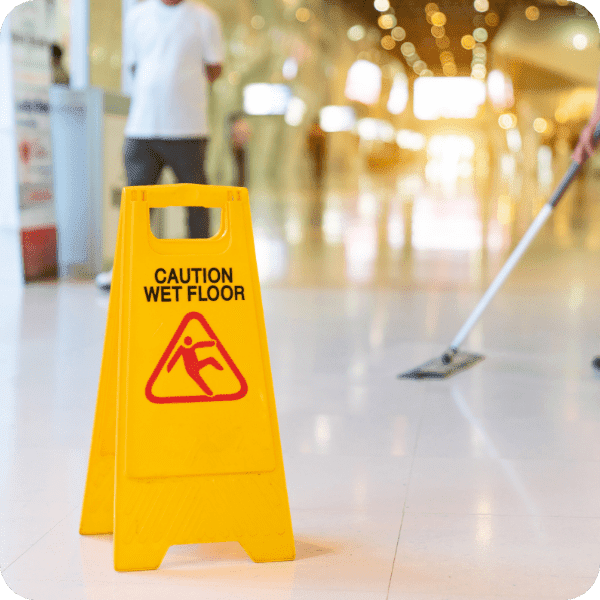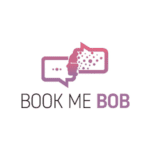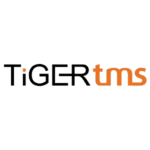 As a hotelier, one of the main concerns is how to make your guests happy. And this might look like an impossible task, especially since nowadays customers needs are constantly changing.
As a hotelier, one of the main concerns is how to make your guests happy. And this might look like an impossible task, especially since nowadays customers needs are constantly changing.
If a few years ago, all was needed to deliver a great guest experience was to provide A and B services and communicate through X and Y channels, today things are completely different. But one thing remains the same: the importance of guest satisfaction for your overall success.
That is why it is important to use the tools you have to focus on enhancing the guest experience and therefore, increasing guest satisfaction. And technology is a big ally in this matter.
Why is guest satisfaction important?
Guest satisfaction is one of the key drivers for guest loyalty. It is also crucial for hoteliers to understand that guest experience and guest satisfaction are closely intertwined. In today’s competitive landscape, guest satisfaction has become paramount for ensuring the long-term success of any hotel.
By focusing on delivering exceptional experiences that meet or exceed guest expectations, hotels can foster a positive reputation, generate repeat business, and attract new guests. Overall, prioritising guest satisfaction sets the foundation for building strong guest relationships and creating a loyal customer base, leading to sustained success in the hospitality industry.
As a hotelier, the satisfaction of your guests should be a top priority. Satisfied guests are more likely to leave positive reviews, recommend your hotel to their friends and family, and ultimately return for future visits. In fact, according to Deloitte, increasing guest satisfaction can raise the likelihood of return visits by 30%.
Guest satisfaction is the cornerstone of a successful hospitality business, this means that the way guests perceive your hotel can have a significant impact on your business’s bottom line. That is why is highly important to focus on increasing guest satisfaction, and in today’s time, there are more tools than ever before to help you improve it.
But how can low guest satisfaction affect your brand? One example is online reviews. If a guest didn’t have a good experience, it is very likely that the review won’t be positive. And in a digital time like now, potential guests often rely on the experiences of others to make their booking decisions. A single negative review can have a significant impact on your hotel’s reputation and ultimately on your business’s success.
There are a variety of digital tactics that can help you enhance the guest experience and build a loyal customer base. By utilising these tools, you can ensure that your guests are happy and satisfied, and increase the likelihood of return visits and positive reviews.
How to measure guest satisfaction?
Your guest satisfaction can be measured through the guest feedback that they leave after their stay, which says a lot about how your hotel is operating to meet your guests’ needs. The guest reviews can influence the booking decision of potential guests depending on their positive or negative scores. Therefore, it is important for hoteliers to be proactive and improve on their shortcomings from guest reviews.
If you want to learn more about how to boost your bookings and make your guests happy, download the guest journey checklist. By applying this, you make sure your guests will know your brand, have an effortless experience and feel taken care of. With a guest journey, your guests will receive the right information and have the right tools to have a great experience.
1. Take action on customer feedback
Getting real-time feedback from guests is important to know how well the hotel is operating. Guest feedback communicates how satisfied the guest was with their stay, it could be a complaint, a suggestion to improve or an appreciation. Therefore, hoteliers should remind guests to provide feedback and proactively respond to it.
Hoteliers can opt for different feedback tools to get their guest reviews, for instance, send a hotel guest survey via SMS when they arrive, a review email alert sent by the booking engine the guests use or an online reputation management software that collects feedback from different platforms in one place to make it easier for staff to monitor, analyse and respond.
Once you gather the customer feedback, the important part is to take action. Responding to their reviews, apologising if anything bad occurred and making amends, that is what will set you apart from other hotels. And even better, that is what will help you to turn all your guests into loyal customers.
2. Use your guest insights to improve your offering
A hold of comprehensive guest data can help your hotel understand guests better and therefore increase guest satisfaction. A hospitality CRM can give you valuable insights into guests’ preferences and expectations, and support your staff to cater for the needs of your guests ahead of their arrival.
For instance, if your guest has special dietary requirements, you can plan the menu ahead and create a special dish for your guest to accommodate their needs, to achieve high guest satisfaction.
Customer data provides a thorough understanding of the guests’ personalities, which is essential when a hotel wants to tailor its services to the guests’ needs.
This means that with a CRM designed for the hospitality industry, you can obtain data about your best-selling services, the ones with more cancellations, and more. With all that data, you can structure your offering, highlighting the most popular add-ons, preparing special hotel packages, upgrading the most requested services, and more.
Guests data can also help you segment your audience and send your offerings accordingly to their preferences. And believe it or not, personalisation in your communications plays a key role in guest satisfaction.
3. Be present 24/7
Being present all around the clock especially when your guests are reaching from different time zones. It can leave a strong impact on your guests if you communicate your guest’s concerns on time.
Hotel chatbots can be a great help for hotels to streamline operations by providing quick and efficient customer service and answering guest questions and resolving issues 24/7. This helps you to connect with your guests while they are still interested, answering the most frequently asked questions in an instant way and helping them to make a booking.
However, fast communication should be present in all your channels and not just in your website. If you have social media accounts, make sure you are answering all your messages at the right time.
Sometimes when your guests reach you through different channels, the communication can get lost or the reply can be delayed which can lead to losing a customer. In this case, one way to overcome this challenge is by bundling all your communications into one single platform, to keep track of your guest communication and increase customer satisfaction.
4. Use a personalised approach when contacting your guests
By addressing guests by name and referencing their past stays or preferences, hotels can create a more personalised and human connection with guests. Guests feel confident and reassured that their needs are being taken care of. This can reduce stress and anxiety, enhance their overall experience and lead to ultimate satisfaction.
Guest data helps you create personalised communication to build a deeper connection with your guests. It also helps to offer personalised recommendations for activities, dining, and other services that they may enjoy. This will show that you are paying attention to their preferences and will enhance their overall experience. Personalisation has become a key factor in the success of the majority of hotels.
When hoteliers use personalised communication to offer recommendations or exclusive offers based on a guest’s interests and past behaviour, guests feel special and appreciated. This can enhance their perception of the hotel and increase their loyalty.
According to London Research, personalisation and relevance are ranked as the most important customer engagement-related trend for businesses in the next five years by companies at 25%.
5. Automation – self-service solutions
Guests prefer when they do not need assistance and can do everything on their own at their convenience. Wherever and whenever they need it. Automation tools can help you to set up automated messages based on guest behaviour, such as booking confirmations, and pre-arrival messages like digital hotel check-in. By providing guests with more control over their experience and reducing wait times for services.
Easy accessibility enhances the guest experience, providing your guests with multiple options of add-on services can also help you as a hotelier to upsell your services. For example, a guest app with automated service requests can allow guests to quickly and easily request services such as housekeeping, room service, or maintenance. This can reduce waiting times and increase guest satisfaction with the faster response time of your hotel staff.
Finally, the key points to take away from this article:
- Taking care of your guest satisfaction is key to building guest loyalty and growing your revenue.
- Technology is taking over the world by storm, it is the driving force behind customer satisfaction and this means that adaptation is key for success.
- Customer satisfaction can be improved by leveraging digital tools such as customer feedback, hotel CRM, and automation.
Customer satisfaction is a never-ending process, you need to take continuous action to meet your customer needs. By utilising these digital tools in the right way, you can enhance the guest experience and improve guest satisfaction, ultimately leading to increased revenue and loyalty.



















